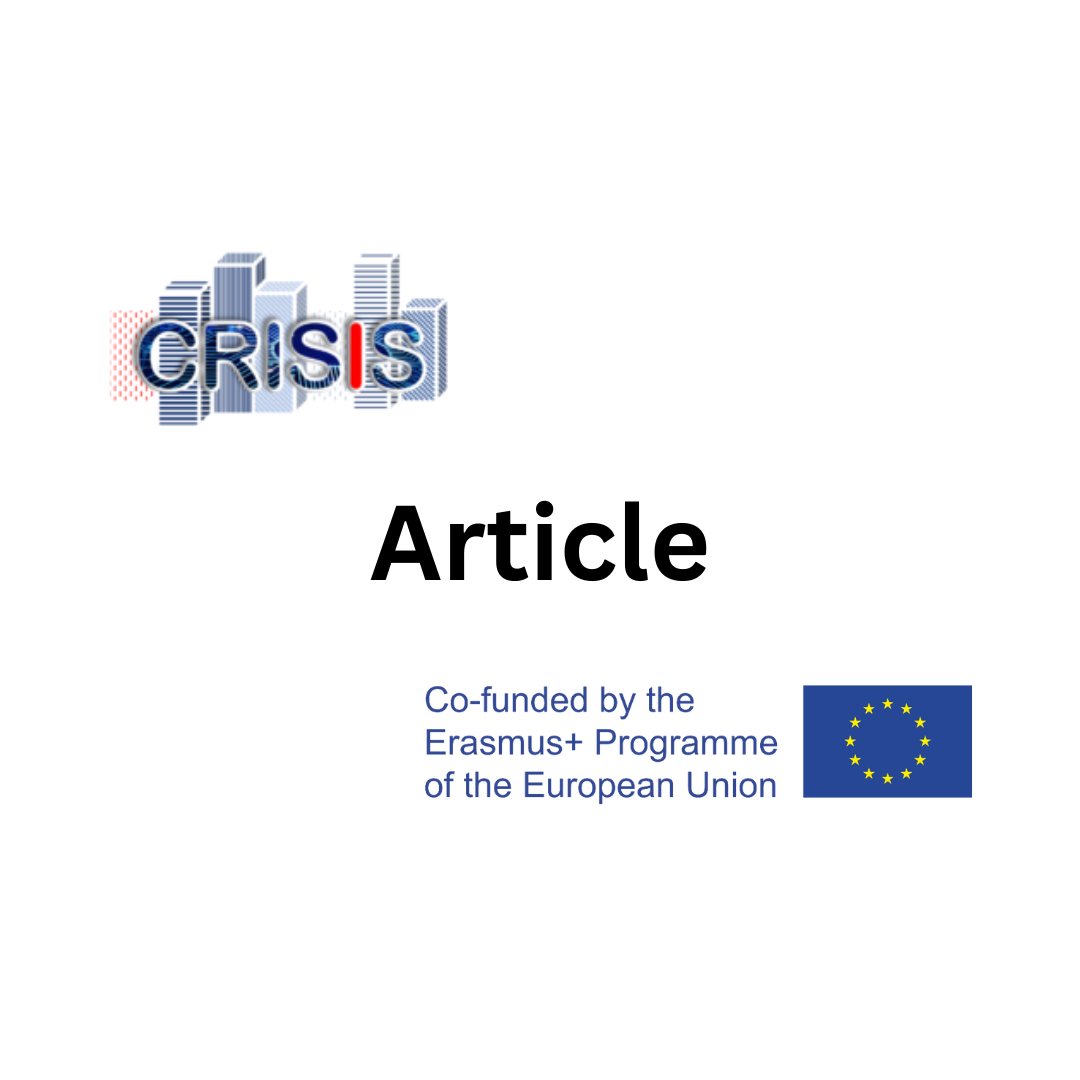Kick-off Meeting for the CRISIS project
The University of Thessaly is proud to announce the successful launch of the Erasmus+ CRISIS project, which aims to develop a new job profile for Smart City Resilient Officers (SCROs) and to design, develop and deliver a pilot training program to certify the first cohort of SCROs.
As Prof. P. Fitsilis, Professor at the University of Thessaly and Co-ordinator of the CRISIS project emphasised “research on smart cities infrastructure is in the focus of scientific community; however, less attention has been targeting the human resources who are going to support the smart cities at strategic, tactical and operational level.” The CRISIS project proposes a holistic approach for the professional development of trainees envisioning to enrich their portfolio of competences and increase their employability on the basis of analysis for the actual competence gaps. It addresses the situation driven by the COVID-19 crisis, which has heavily impacted education by accelerating the need for individual flexibility and the ever-increasing demand for digital skills. CRISIS project will design and implement a learner-centered curriculum, an objective that will be better achieved through flexible learning journeys enabled by the curriculum’s modular structure.
Overall, the main objectives of the CRISIS project are as follows: a) Provide in a structured and systematic way a framework for educating smart cities staff on resilience, a need that recently was proven of paramount importance, b) Develop an innovative curriculum for SCROs (currently there is none available), c) Provide innovative learning tools, d) Close the competence and skills gap for municipalities officials, e) Promote the European Collaboration on smart cities’ education, f) Increase the awareness of the Member States, Local Authorities, Municipalities and of various stakeholders that resilience of smart cities is a complex and difficult to acquire competences, g) Build-up on important work delivered from other ERASMUS+ projects, such as SmartDevOps project. The project will focus on implementing trans-disciplinary approaches and novel pedagogical models including contemporary approaches such as concept mapping, problem-solving, group-based, project-based, peer, and participatory learning in order to engage, inspire, motivate, and stimulate learners throughout the learning process.
University of Thessaly co-ordinates the CRISIS project, which is funded by ERASMUS+. Partners in the consortium are: the Hellenic Open University (Greece), the University of Nicosia (Cyprus), the University of Minho (Portugal) and FernUniversität Hagen (Germany). The kick-off meeting for the CRISIS project was conducted 7th – 8th of April 2022, online. The project will last for 24 months with a total budget of almost 315000 Euros.


